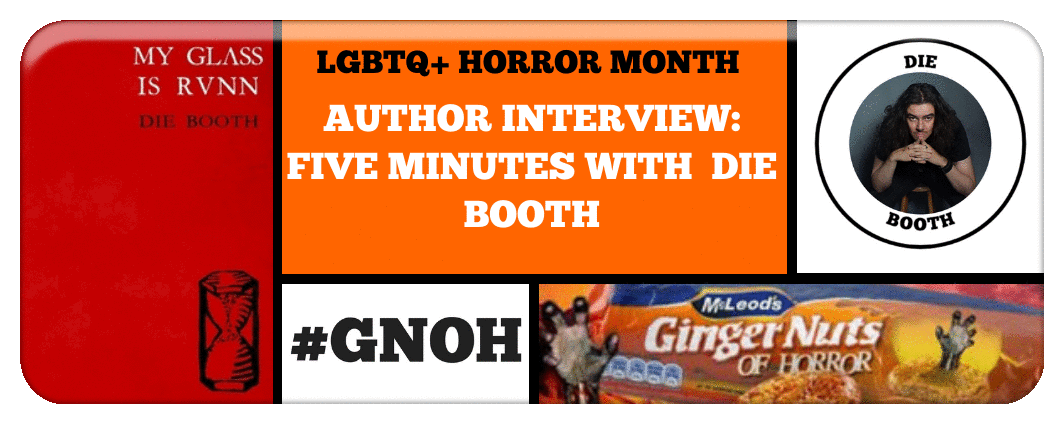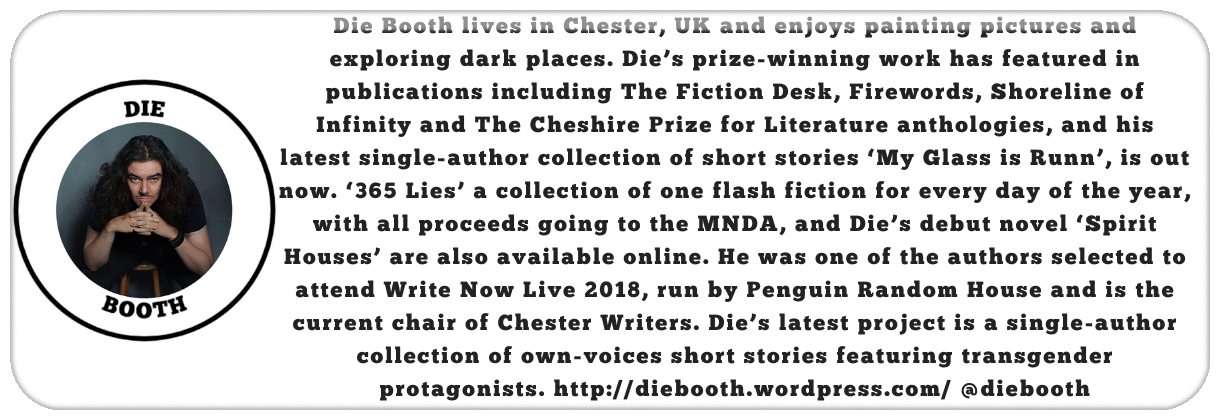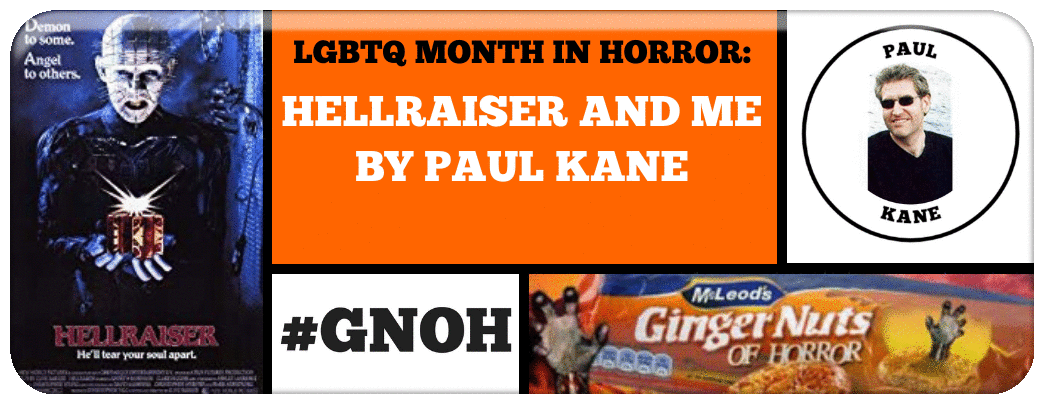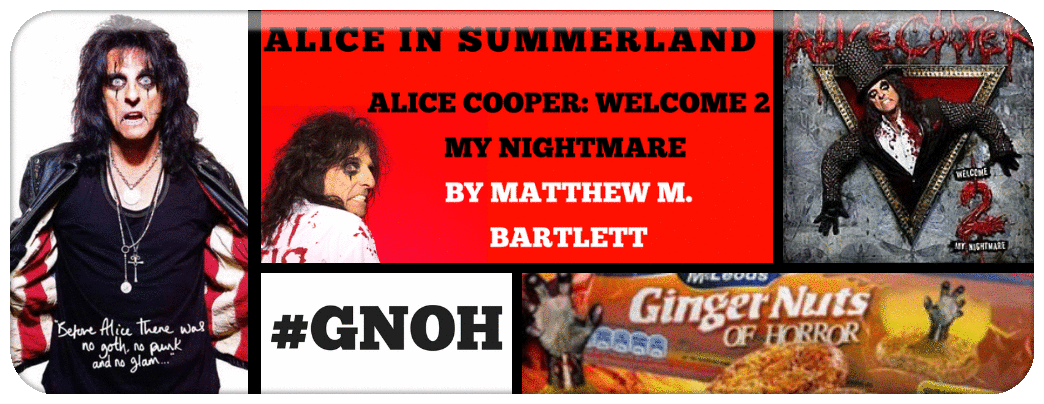|
Could you tell the readers a little bit about yourself? Hi, I’m Die and I enjoy telling lies. I usually have a bit of trouble categorising the exact genre of my stories, but I think ‘unsettling’ probably covers it best. When I’m not writing, I like walking in the wilds, exploring abandoned places, building stuff and listening to goth music. I also run and DJ at the best* goth night in Chester alongside my partner, Mark. My favourite biscuits are Tunnocks caramel wafers, and Jack Russell terriers make me happy. (*and only) Why horror? What is the appeal of the genre to you as both a fan and as a writer? It’s one of those many things that you can just ascribe to ‘a feeling’. I’ve always been drawn to ‘spooky’ things, ever since I was a small child. They just felt more homely to me. My favourite type of horror is the type that blurs the lines between ‘good’ and ‘bad’ – where the ‘monster’ turns out to be your friend. I like how horror makes us question ourselves and test our limits. As LBGTQ+ fan and writer of horror, how did you feel when you first became immersed in the genre and found that representation that you could identify was few and far between? It’s not just horror – media representation of LGBTQ+ is still pretty sparse. I think it’s getting better, slowly. There are definitely more gay characters in fiction now than there used to be, although certain tropes do seem to still persist (the gay guy is still never gonna be the horror movie survivor, even in 2018!) As a trans man, however, I can’t really name any trans masculine characters off the top of my head – certainly not in horror. It’s never really stopped me identifying with characters, though. The thing about being trans is that you can’t necessarily ‘tell’ a person is transgender, so it’s quite easy to imagine that your favourite character is. And for me, personally, I’d rather do that than have an overt transgender narrative that might potentially alienate me even more, if it’s about transitioning, or prejudice. How did you discover authors that wrote about characters that you could relate to? The first writer I discovered who wrote horror that I could really relate to was Poppy Z Brite. I was working a Saturday job in a library when I was about 15 and I was drawn to the cover of Lost Souls. For me, at that age, horror tales about pretty, gay, teenage goth boys were a revelation. He seemed to move in the world that I occupied, listened to the same music that I did, read the same books. It was very comforting to know those characters. Then, many years later, I discovered that Poppy Brite was also a trans man. Another writer I loved during my teenage years was Martin Millar. His work was less overtly horror, but was very LGBTQ+ inclusive fantasy fiction. I still very much enjoy his ‘Werewolf Girl’ books. Later, I became a big fan of Chuck Palahniuk, whose work definitely falls into the horror bracket, I think. I’m glad to say I don’t exactly identify with his characters, but again, he’s a gay author writing horror that certainly includes LGBTQ+ characters. Honestly though, in terms of identifying with characters, I’ve always seemed to identify more with ‘monsters’ (vampires, demons, robots). They often seem to me to read as allegories for marginalized identities (Crowley from Supernatural is the best trans masculine representation I’ve personally ever found, and he’s not even trans!) and I identify more with them more than with intentional representation, a lot of the time. Other than the horror genre, what else has been a major influence on your writing? The stories I write come most often from my dreams, so I guess my subconscious has the most influence on my writing. Whatever I go through in day to day life gets regurgitated through the filter of my subconscious and turned into fiction. Perhaps it’s a way of dealing with real fears. I dream a lot, and they’re usually bad dreams (I’m not sure why, as I’m a pretty happy guy when I’m awake!) Mostly it’s too vague to be usable, but every few weeks or so I’ll usually get something that sparks my waking imagination, or very occasionally, a fully-formed horror that I’m excited to write up! The term horror, especially when applied to fiction always carries such heavy connotations. What’s your feeling on the term “horror” and what do you think we can do to break past these assumptions? This is actually one of my main issues as a writer. The term ‘horror’ is so loaded. It still seems to carry the assumption that it’ll be blood and gore - which presents a problem for me when categorising my work, when I tend towards the more unsettling, psychological or paranormal side of the genre. There’s still also a lot of snobbery when it comes to ‘genre writing’ which is utterly ridiculous. There is so much excellent writing being overlooked, just because publishers and readers don’t want to be associated with ‘genre’. I tend to list my work as ‘literary horror’ in the hopes that it’ll get the message across more clearly, but that often seems to end up with my stories straddling two ‘opposing’ genres – too literary for horror, too horror for literary – and it’s a real shame that that’s the case. A lot of good horror movements have arisen as a direct result of the socio/political climate, considering the current state of the world where do you see horror going in the next few years? Well, the world is one giant tyre fire at the moment, which is depressing. I’m not a huge fan of dystopian fiction at the best of times (the world is unhappy enough without making fiction that you can control unhappy too) but at this stage I really do wish people would start writing some happier endings..! I’m a firm believer in life imitating art, so what I’d at least like to see in fiction is more hopeful messages, and more inclusivity and positivity when it comes to marginalised characters. That doesn’t sound like much of a ‘horror’ message, but I’ve also found that, as a genre, horror (and fantasy and sci-fi) seems to be able to encompass the marginal with even greater ease than other genres. What are the books and films that helped to define you as an author? Well, as I mentioned, it was probably ‘Lost Souls’ by Poppy Brite that first made me want to write ‘seriously’. Since then I think I’ve mainly been influenced, style-wise, by authors like Chuck Palahniuk and Bruce Robinson. In terms of content or atmosphere, I’ve found writers like M R James and Shirley Jackson the most affecting. I’m not saying that I write like them (I wish!) but I’ve grown to love the quiet, unsettling, creeping type of horror that never fully shows the source of the fear. In terms of films, my early favourites were always Harryhausen films – I remain a huge fan to this day. There’s something organic about those stop-motion creatures. More recently, I’m a huge fan of Del Toro for the same reason – he has an ability to make the monstrous beautiful, even if it’s not outright friendly. I like to see subtlety and beauty in horror. In recent years there has been a slow but gradual diversification within the genre, which new LBGTQ+ writers do you think we should be paying attention to? I have to confess, I don’t read as much as I’d like to, especially newer authors. One of my resolutions for 2019 is to read more books than I did last year. That said, I can thoroughly recommend both SR Jones and Alys Earl – two LGBTQ+ authors who published short stories and novels in 2018 and whose writing I greatly admire. How would you describe your writing style? A vast pile of bones grown over with climbing roses. Are there any reviews of your work, positive or negative that have stayed with you? One of the first rejections I ever received took such exception to a particular character in the story I’d submitted that it makes me laugh remembering it even to this day. I think when a spec-fic editor rejects a story because a character is too unnerving, that has to count as a win. As for good reviews, I’ve had too many lovely ones and I’m so grateful for all of them, to choose. One that I’ll always remember went along the lines of ‘five stars isn’t enough – I want to give this a galaxy’ which I thought was really sweet. Also, for my novel ‘Spirit Houses’ “Wow, that Negative. A place that is upsetting and unsettling, but where you might just want to spend a thousand years.” What aspects of writing do you find the most difficult? The writing part..! I’m honestly so bad at it. I have so many ideas, I can get them out just fine, but the actual sitting down and writing bit – it’s like pulling teeth! I’m a very slow worker. And don’t get me onto marketing – I’m even worse at marketing than writing. Telling stories is something I love to do, but publicising my work is something I actually kind of hate – I find it dull, repetitive and it feels a bit narcissistic if I’m honest. Are there any subjects that you would never write about? There are certain things that you’ll never see in a story of mine. I’m not into the more body-horror or splatterpunk side of horror. You’ll never see sexual violence or torture porn. I’m not into torture, full-stop, and I won’t write themes of abuse against any creature (human, animal or inhuman!) As for subjects – I’m not sure there are any subjects I won’t write about, if they’re handled in the correct way, but I’m always trying to educate myself to the best of my ability and trying to avoid writing about subjects that might be better tackled by those who are closer to them. Writing, is not a static process, how have you developed as a writer over the years? As with anything else, the more you write, the more practiced you get at it. I’d like to hope, the better you get at it, too. I’ve certainly become more disciplined in terms of sitting down and getting things done until they’re finished, and I’ve become better at writing to deadline. I think my style has developed too, so my writing is a lot more ‘me’ than it perhaps was at the start of my career. And I’ve certainly got better at grammar and formatting, thanks to a friend teaching me how to actually format dialogue..! What is the best piece of advice you ever received with regards to your writing? It sounds like a bit of a cliché, but the thing I find the most useful still, is ‘write what you know’. If you’re writing from your own experience, it can’t be ‘wrong’. And if you’re writing about things you love and themes that are important to you, then I think that it always shows through in the work. If an author enjoyed writing it, then it’s more likely that a reader will enjoy reading it. In my opinion, self-indulgent is usually the best! Getting your worked noticed is one of the hardest things for a writer to achieve, how have you attempted to break through the barriers that are so often in place against LBGTQ+ writers? I think ‘attempted’ is the operative word here, as I’m not sure that my work is actually being noticed..! I’ve mentioned before, but I don’t like marketing. I find it one of the most difficult aspects of being a writer, in an oversaturated market place. Unless you have a recognized name, or an actual marketing team behind you, then getting your work out there is a huge undertaking. I think that’s difficult for any indie or small press writer, regardless of minority status. I can’t say that I’ve particularly done anything to break through any barriers – I’ve just carried on churning, submitting work to every market I can and hoping for the best. Many cis white male authors use LGBTQ+ characters in their works, what’s the mistake that they make when trying to portray these characters? I think that anyone writing a character from a background that isn’t their own runs the risk of writing that character in a way that people from that background can’t fully identify with. There’s a danger I think of falling back onto tropes and clichés, or putting too much emphasis on angst or persecution as a short-cut to drama. That said, I’ve read characterisation like that in own voices fiction too, so I don’t think it’s necessarily only a straight, white cishet issue. I think that every author can benefit from really thinking about their characters, getting inside their heads, and making sure they’re real, live individuals, rather than stereotypes. Moving on to getting your work read by unwashed masses, what do you think is the biggest misconception about LGBTQ+ fiction? I’m not entirely sure what people think about LGBTQ+ fiction, to be honest! I think a lot of it might be viewed as necessarily having some kind of romance element to it, to hammer home the sexuality of the characters, and that people must be demonstrably x, y or z for it to qualify as LGBTQ+. Which isn’t true – you can have an incidentally bi character without them having any form of romantic plotline at all, for example. There are as number of presses dedicated to LGBTQ+ fiction, do you view these as a good thing, or do you think they help to perpetuate the ongoing exclusion from mainstream presses? I’ve seen a lot of LGBTQ+ calls for submissions this year and I do think it’s great, but also a bit of a double edged sword. On one hand, it’s brilliant that there’s finally a wider market for inclusive fiction, and there’s certainly the benefit of ‘making up for lost time’ in terms of more places accepting exclusively queer fiction. It’s also handy for me in a way, as submitting to a trans anthology, for example, ensures that my characters will be read favourably and my work isn’t going to be rejected purely for it featuring trans characters. I do worry though, that it’ll lead to my work being ‘typecast’. I’m a writer, I’m not just a trans writer. So whilst I think queer presses are fantastic, and a positive thing, I very much look forward to increasing integration amongst the broader writing community. It’s really great to see so many mainstream presses with declarations that they accept and value diversity in writing. Hopefully one day soon, we won’t even need to have those declarations because it’ll just be a given. And here is the million dollar question do you agree with movements like this and things such as Women in Horror Month? If so how would you like to see sites such as Ginger Nuts of Horror tackle diversity? Absolutely, I think showcasing different aspects of a genre is great, and I’d love to see more ‘showcase’ months for lesser-seen minorities. The bottom line for me, really, is inclusivity though – if you just ensure that you’re not actively excluding a minority, then that should be enough. The most common phrase you hear when people object to active movements to encourage all forms of diversity is “I don’t care about the sexuality, gender, color etc etc of the writer I only care about good stories” what would you like to say to these people? I can see the reasoning behind this argument, because on one level I agree with it – I’d rather have my writing read because it’s good, than purely for the fact it features trans characters, or that I’m a trans author. However, the fact that there is still a lack of diversity in media means that encouragement of diversity is still necessary and valid, and there are many more authors out there who are equally as talented as writers from traditionally more privileged or visible groups, who deserve to have their work showcased. To many writers, the characters they write become like children, who is your favorite child, and who is your least favorite to write for and why? I don’t think I can choose a least favourite. Even the worst villains come to have a place in your heart when you’re the one writing them! I guess I did have a character in a story called ‘The Fourth Ape’ named Hubert Dole and he was a pretty bad guy – killed animals for taxidermy, and murdered a few people too. As for favourites, I tend to like characters with voices I really enjoy writing the dialogue for, so I’ll say my favourites are probably… everyone from my novel ‘Spirit Houses’ but I have a special soft spot for Fix. He’s been with me for a long time and I feel like I know him. What piece of your own work are you most proud of? I’m proud of pretty much anything I write, because writing is hard work! There’s one project I did though called ‘365 Lies’. I made a spur of the moment New Year’s Resolution to write a flash fiction a day for an entire year. I stuck to it, and I published the resulting collection of stories as a single author collection and all the proceeds from sales have been and will continue to be donated to the MNDA. So I’m really proud of having stuck to doing that for a full year, and of the collection of stories that came from it. For those who haven’t read any of your books, which of your books do you think best represents your work and why? My book ‘My Glass is Runn’ is a pretty good cross-section of my work, as it’s short stories, so shows quite a wide variation of my writing, and I think it represents the rest of my back catalogue quite well. Do you have a favorite line or passage from your work, and would you like to share it with us? I should probably include a nice quote here, but if I’m being honest, the one line of my own work that really sticks with me (and is the one thing I’ve written that me and my partner actually quote at one another with frequency) is “Oh look, my car keys!” That has zero meaning out of context, but it’s at a point in ‘Spirit Houses’ where several of the characters have travelled to another plane, and Alex is delighted to discover that he hasn’t lost his car keys (despite his car being in a different dimension). It sums his optimism up quite well, I think. Can you tell us about your last book, and can you tell us about what you are working on next? The last book I published was ‘My Glass is Runn’ which is a single author collection of fourteen creepy short stories. The stories range from a reclusive genius building a reanimated menagerie in the woods, to a child discovering what horrors lurk at the bottom of the ball pit, to a son falling foul of the same curse that claimed his greedy father, and many more. I’m hoping to publish another single author collection, provisionally titled ‘Making Friends (and other fictions)’ in 2019. I’m also currently working on a collection of short horror stories, all of which have transgender or non-binary protagonists. What was the last great book you read, and what was the last book that disappointed you? I read ‘Thin Air’ by Michelle Paver this year, and I was really impressed by it – it had that claustrophobic air of menace that I aspire to in my own writing. I’m currently reading ‘Teleny’ (attributed to Oscar Wilde) and it’s actually really grim, and not in a good way! What's the one question you wish you would get asked but never do? And what would be the answer? Hmmm. Maybe ‘What fictional character would you most like to hang out with, your own or someone else’s creation, and what would you get up to?’ I think I’d hang out with Manda, Ray and Alex from ‘Spirit Houses’. Maybe just work-shadow them for a day, then go for a few drinks in the evening and ask them what the heck is going to happen in the sequel I’ve got planned..! for more info and to purchase die's books please follow the links below.Website: https://diebooth.wordpress.com/
Facebook: https://www.facebook.com/dieboothauthor/ Twitter: https://twitter.com/diebooth ( @diebooth ) Sales page (Lulu): http://www.lulu.com/spotlight/diebooth List of publications and sales links: https://diebooth.wordpress.com/writing/ Comments are closed.
|
Archives
May 2023
|









 RSS Feed
RSS Feed

